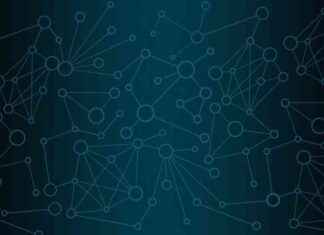The Crimean bridge damaged by an explosion, Ukrainian counter-offensives in the north-east and south of the country – for Putin, many things in Ukraine are currently not going according to plan. Is he now ready for a further escalation? Former NATO and Bundeswehr General Hans-Lothar Domröse says that a Russian use of nuclear weapons cannot be completely ruled out. But the price for the Kremlin boss would be enormous, he says.
ntv.de: At the beginning of September, the Ukrainian armed forces launched a counter-offensive in the Kharkov region and quickly liberated large areas. What was the recipe for this rapid advance?
Hans-Lothar Domröse: That was a classic success with cunning and deceit. Everyone believed that the Ukrainians were launching a major counter-offensive in the south, in the Cherson region. President Volodymyr Zelenskyy had announced this several times. As a result, Moscow took several battalions from the front and sent them south. Fighting continues in the Kherson region. But the focus is not in the south, but in the north, where the Russian lines have now thinned out.
Despite the Ukrainian victories, the Kremlin is pressing ahead with its attacks on Bakhmut. Why is the place so important for Moscow?
Bakhmut is a key city in Donbass. Several important roads pass through it. And when you think of winter, with mud, slush and frost, then you have to have such traffic junctions in your hands in order not to sink into the morass. In this respect, the place is also important for the Ukrainians.
Earlier in the week, Russia bombed several Ukrainian cities. Are you surprised by the massive missile attack on targets that obviously have no military use?
Honestly no. So far, Russia has ruthlessly shelled schools, kindergartens and residential complexes. That’s not new. The aim should certainly be to break the resilience of the Ukrainians and spread fear and terror throughout the country. There appears to be some anger behind Monday’s attacks after an explosion damaged the Crimean Bridge near Kerch over the weekend.
The German air defense system IRIS-T SLM has now arrived in Ukraine. So far, however, Berlin has had difficulties with the delivery of other heavy weapons – key points “Leopard” and “Marder”.
The “Leopard” battle tank and the “Marder” infantry fighting vehicle would of course also be very helpful, especially in counterattacks. If the Ukrainian formations move forward from cover, they will come under Russian defensive fire. Especially in such situations “Leopard” and “Marder” are suitable. They have rapid thrust and accurate weapon systems that hit even while moving. In Europe, several states use the “leopard”. It would be nice if, for example, countries like Germany and Spain joined forces and jointly deliver a certain number of battle tanks. Then the topic of going it alone would also be off the table.
Belarusian ruler Alexander Lukashenko has announced the establishment of a joint intervention force with Russia. Will we soon see Belarusian soldiers fighting in Ukraine?
That is hard to say. But the move naturally aggravates the situation for Ukraine. So far, Belarus has not taken an active part in the fighting, only making its territory available as a staging area for the attack on Kyiv. The Ukrainians must react now and station forces on the border with Belarus to be prepared for possible attacks. These forces are then missing elsewhere.
Do you think Putin is capable of a further escalation, such as an attack with nuclear weapons?
We all don’t know what the man is thinking. Since the Crimean Bridge was damaged, he seems to have felt his honor violated. Personal sensitivities certainly also play a role. Putin will not give up that easily. By using nuclear weapons, he would change the scenario horribly and it would be a potentially heavy price to pay. It might cost him his friendship with China. In response, the West could smash the Russian army in Ukraine with conventional weapons. If Putin has any sense at all, he won’t use nuclear weapons. Of course, this cannot be completely ruled out.
Janis Peitsch spoke to Hans-Lothar Domröse







